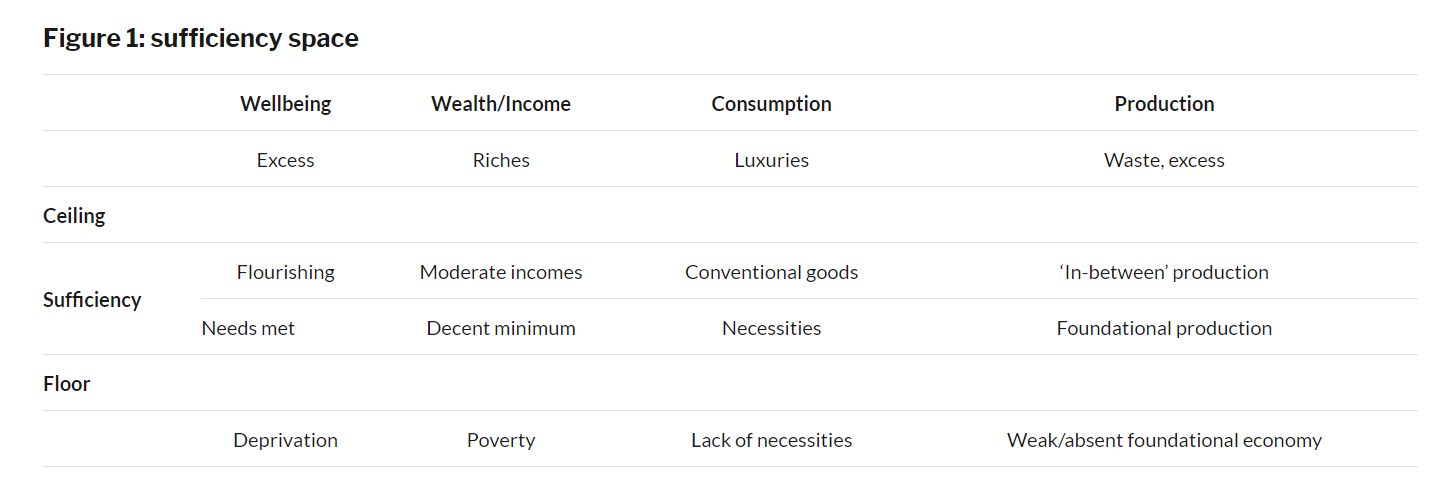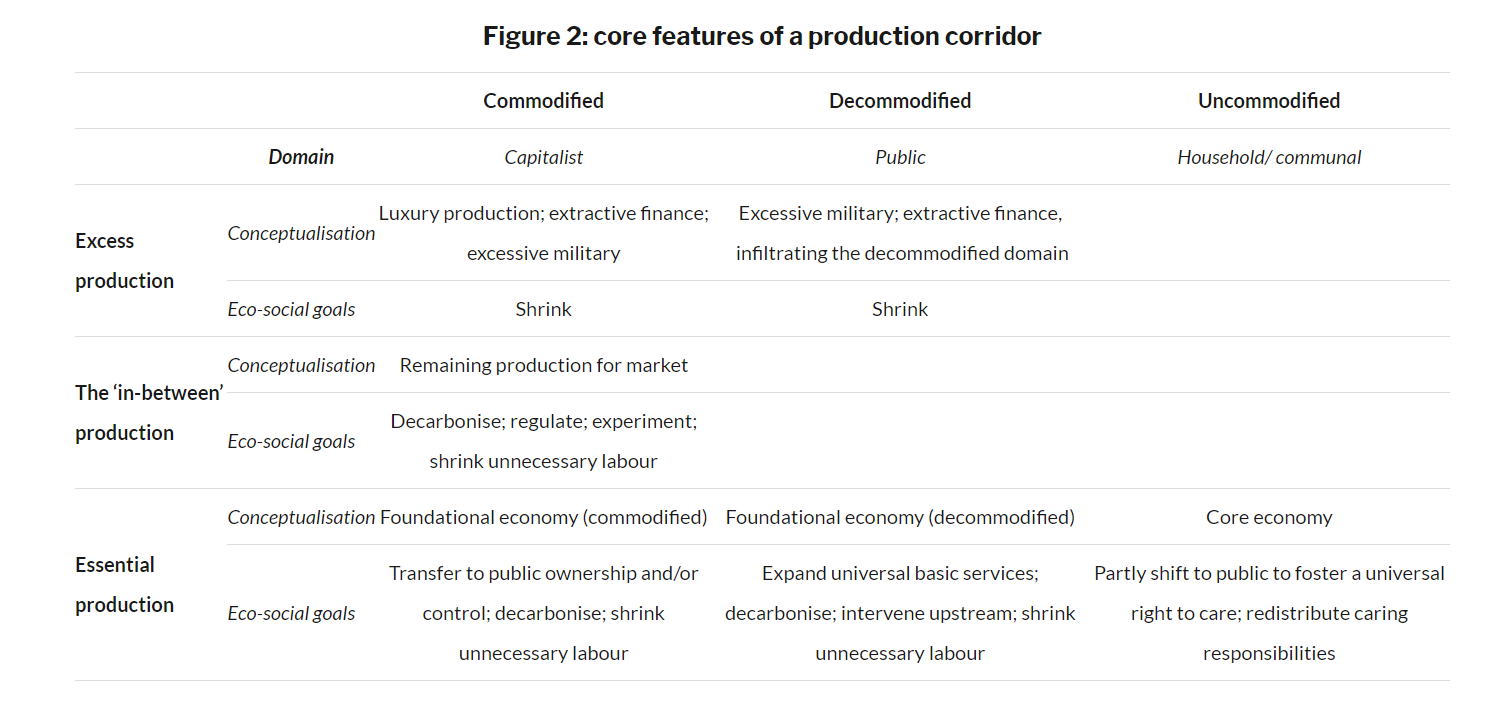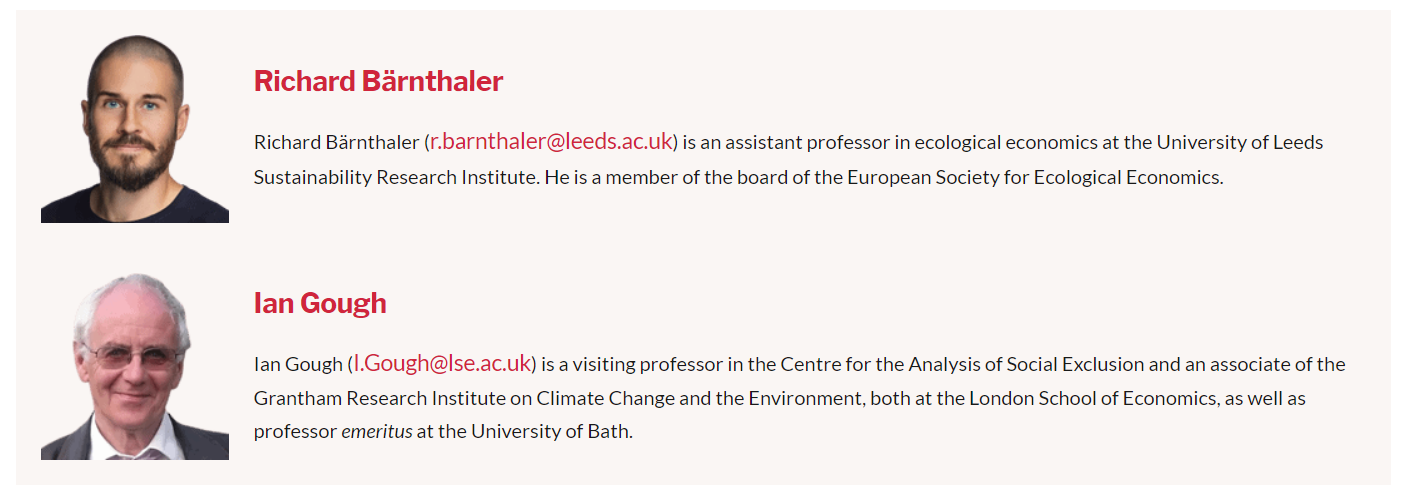Welcome to DU!
The truly grassroots left-of-center political community where regular people, not algorithms, drive the discussions and set the standards.
Join the community:
Create a free account
Support DU (and get rid of ads!):
Become a Star Member
Latest Breaking News
Editorials & Other Articles
General Discussion
The DU Lounge
All Forums
Issue Forums
Culture Forums
Alliance Forums
Region Forums
Support Forums
Help & Search
Sufficiency: towards an eco-social economy

The only exit from the ‘polycrisis’ is a corridor of sufficiency between meeting need and avoiding excess.
https://www.socialeurope.eu/provisioning-for-sufficiency-towards-an-eco-social-economy

Celebrating excess: West 57th Street in New York, unofficially known as Billionaires’ Row (rblfmr/shutterstock.com)
Recent crises have raised questions about the purpose of the economy and the nature of value. The pandemic forced governments to prioritise ‘core’ sectors of production and ‘essential’ workers. Following the full-scale invasion of Ukraine, the energy crisis in Europe resulted in emergency measures to determine priorities in allocations of gas. Both crises raised questions about which activities have value, being essential to survival, reproduction, wellbeing and justice—and which are harmful, wasteful or destructive. Conventional neoclassical economics is of no help here. It has no place for the idea that some preferences are better or worse, that some forms of labour are more essential or harmful or that some levels of income, wealth or consumption are undesirable. The dominant stance remains value neutrality—‘De gustibus non est disputandum’ (there is no arguing about tastes).
A world of flourishing
We require a different standard of value, one of sufficiency. ‘Sufficiency’ contrasts with ‘efficiency’ as a goal to a means: efficiency focuses on ‘how’, sufficiency on ‘to what end’. The core idea is of a space between a floor of meeting human needs and a ceiling of ungeneralisable excess. The latter has become more urgent with runaway global heating and ecological crisis. The Intergovernmental Panel on Climate Change (IPCC) has recognised its centrality, defining sufficiency as ‘a set of measures and daily practices that avoid demand for energy, materials, land and water while delivering human wellbeing for all within planetary boundaries’. The vision of a sufficiency space can be applied to various domains of the economy as well as human wellbeing: income and wealth, consumption and production (Figure 1). Sufficiency is not simply meeting basic needs. It envisages a world of flourishing, moderate incomes, comfort goods and everyday production—up to the ceiling of excess, riches, luxury and waste.

Floors and ceilings entail objective and universal limits: human needs and planetary boundaries. Human needs, commonly including health, autonomy and social participation, are prerequisites for avoiding harm. Planetary boundaries ultimately rest on biophysical tipping points—thresholds where environmental systems undergo a non-linear transformation which is likely to be irremediable. Both however require human thought and social action to determine their limits in real-world contexts. Human needs are met via a vast network of contextual need-satisfiers; to gauge these requires collective dialogue in recurrent democratic fora. The route from planetary boundaries to actual ceilings also requires a collective determination, based on scientific knowledge about secure policy routes coupled with political discussions, to achieve a normative agreement—on what is to be reduced, for whom and in what form. This is now recognised by the IPCC: guaranteeing decent living standards within limits entails prioritising human needs over consumer preferences in some circumstances.

Therefore, ‘minimum and maximum standards of consumption or sustainable consumption corridors’ and ‘a distinction between necessities and luxuries’ are required to realise the potential of living well within limits. This idea has been developed by theories of a ‘consumption corridor’, leading over time to a sustainable consumption space. Our goal here is to construct a parallel ‘production corridor’. To focus solely on demand and consumption is in danger of neglecting the power of industries and corporations in shaping consumer behaviour and practices, leaving production and its prevailing power relations largely untouched. It understates the link between production in a capitalist economy and excess—the production of over-consumption. Moreover, tackling production directly can be ecologically more effective than detouring through ‘end of pipe’ consumption. Thus we envisage a strategy for transition to a sufficiency economy, which must progress very rapidly, starting now. Paralleling the contributions on consumption corridors, this transition aims to establish production floors (to guarantee need satisfaction) and ceilings (to shrink forms of production that endanger planetary boundaries and need satisfaction).
Identifying production floors..........................
snip

InfoView thread info, including edit history
TrashPut this thread in your Trash Can (My DU » Trash Can)
BookmarkAdd this thread to your Bookmarks (My DU » Bookmarks)
1 replies, 266 views
ShareGet links to this post and/or share on social media
AlertAlert this post for a rule violation
PowersThere are no powers you can use on this post
EditCannot edit other people's posts
ReplyReply to this post
EditCannot edit other people's posts
Rec (3)
ReplyReply to this post
1 replies
 = new reply since forum marked as read
Highlight:
NoneDon't highlight anything
5 newestHighlight 5 most recent replies
= new reply since forum marked as read
Highlight:
NoneDon't highlight anything
5 newestHighlight 5 most recent replies
Sufficiency: towards an eco-social economy (Original Post)
Celerity
May 2024
OP
Think. Again.
(15,684 posts)1. Thank you for posting this...
Bookmarking for a focussed read later.